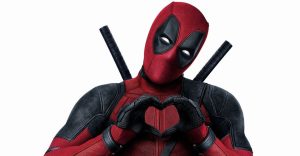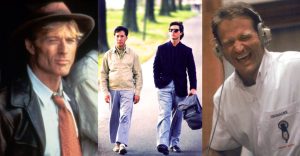Rodney Barnes Interview: Winning Time
In the 1980s, the Los Angeles Lakers become one of the NBA’s greatest dynasties, winning five NBA Finals. Led by exciting point guard Magic Johnson, the team’s “Showtime” era put the Lakers back on the map and established them as one of the league’s most accomplishes franchises. This period of time is immortalized in the HBO series Winning Time, which chronicles the rise of the Lakers dynasty, starting with Dr. Jerry Buss buying the team and drafting Johnson.
Among the Winning Time creative team is Rodney Barnes, who serves as an executive producer and writer. He spoke with Screen Rant to discuss his work on the show, his incredible resume that includes time with Marvel and Star Wars, and much more.
Screen Rant: Congrats on this series, it’s really awesome. I have to say, your credits are wild. You’ve done a little bit of everything. How did you get involved with this series and why did you want to bring this story to life?
Rodney Barnes: Did you also see I’m an actor in the show as well?
Are you?!
Rodney Barnes I am. I’m Maurice the Head of Laker Security. If you missed it, the guy that’s stopping Pat Riley from getting into The Forum. That’s me.
Oh my god. you really do it all.
Rodney Barnes I try. I got kids I gotta feed.
I got involved with this, Max Bornstein, our showrunner, we’ve been collaborating on things for about the last decade and he reached out to me and asked me to be a part of all of this. Once we had that conversation and saw what it was about, it was a no-brainer.
Lakers obviously have a massive fandom. You’ve worked on Marvel, Star Wars, all these amazing properties. Where does Winning Time rank in terms of just getting it right for the fans? Really wanting to get it right?
Rodney Barnes It’s at the top because you don’t have anything else to compare it to. All of those other things sort of have this pedigree behind them of years and years of already having material established. Here, we’re sort of breaking the fourth wall, no pun intended, of creating something that people really haven’t seen before. Unfortunately, I’m old enough to have remembered a lot of film and television shows that were sports-themed that didn’t really do the game, or the players who played the game, they didn’t represent them as well as they could have. I think we went out of our way to add layers and dimensions to the players, and to the owners, and the coaches, and everyone else involved. It’s sort of a love letter to a period of time, but also to the Los Angeles Lakers and the game.

Well, I definitely learned a lot watching the show. When you were diving in, was there anything that you were most surprised to learn was actually true? Or something that maybe you didn’t know?
Rodney Barnes There were a couple of stories. Certainly, the Jack McKinney story. I didn’t know his story in that way. Here’s a guy who was an innovator of the game. Before him, guys played a really slow, conventional style of basketball. It was very traditional. You had this other thing happening on the streets of America, on the courts of America, where guys were playing up-tempo street basketball. He infused both of those things, and no one remembers the guy. The Lakers sort of embodied that transition, in evolution in the game, from the way the game used to be played into a modern game that we recognize today, and a lot of that was due to Jack McKinney.
Then, there was the Spencer Haywood story, another guy, who started free agency, the stuff that LeBron, and Kevin Durant, and a lot of these guys are doing, moving around from team to team. They wouldn’t have been able to do had it not been for him. I remember, I grew up in Maryland, and the Bullets were team, now the Wizards, and basically, when you had a team, you had those guys until they retired. There wasn’t a lot of moving around. But because of this guy, it changed a lot of the way the business of the game is conducted.
At what point in the process did the cast start coming together? And were there any things about the castings that maybe changed a little bit about the writing, or the characters and the way you wrote them?
Rodney Barnes Not so much. I think the casting of the players was the hardest part because on one end, we have these Oscar winners. We have these storied, celebrated – the Adrian Brodys’ and the Sally Fields’ and the John Cs’ — but on the other side, trying to find actors who could, not only play basketball but act and embody these iconic figures who we sort of have a relationship with. You believe you know Magic Johnson by the way he played the game of basketball, and he’s become such an iconic figure in the world of business, that finding somebody who could just smile or maybe throw a good pass wouldn’t be enough. So we were blessed to be able to find Quincy Isaiah, who not only embodies him as a basketball player in his personality, but when you get to know him as a human being, he’s the happiest guy on earth. He sings in the makeup trailer. I don’t understand it. I feel bad for the ladies in the makeup trailer. But he has the spirit of optimism that just is infectious. It feels like, if I was playing with Magic Johnson, I would want him to be like this guy.
The same thing for Dr. Solomon Hughes, who plays Kareem Abdul-Jabbar. Finding a guy that’s seven-feet-tall, can play the game of basketball, loves jazz, and is an educator, How rare — and, looks like Kareem Abdul-Jabbar! It’s such a rare thing. I think, certainly, on those two fronts, we got really,, really lucky. Neither of them had acted before and, if you’ve seen any of the episodes, they do such a great job. I think it’s a testament to their attitude and work ethic.
I know I said this at the beginning, that your credits are wild. You were a [Production Assistant] on Blade.
Rodney Barnes I was! That was my first job in [Los Angeles] when I lived in my car. I needed a gig and I used to do PA and AD work back on the east coast. I made a couple of friends and when I came out, Blade was my first LA gig.
What stands out to you most when you just look back on that experience? Especially where you are now.
Rodney Barnes When I tell younger writers, people when they ask me about how I came up, [they’re] like, “Oh my God, you lived in your car. It must have been horrible.” And it really wasn’t. I felt it was such an honor. I was so grateful to just be in the business and to be in Hollywood and to be working on a set with stars. You know, Wesley Snipes in Blade, I’m a comic book guy […] This was before the big Marvel movies and what it’s become. This was like one of the first modern comic book takes, and it was so fun. There’s a certain sentimental viewpoint that I have when it comes to all of that and that period of time. Now, I have the same thing, but I look at it from a different lens. Now, it’s an honor to be able to influence how a story like this is told. A lot of, certainly, younger people have no idea what these Lakers were or are, who these people were, and our show will be that first look that many of them have into what it was like to live during that period of time and play basketball during that period of time. So there’s nothing but good. There’s nothing but good for all of it.
Winning Time premieres on HBO and HBO Max on Sunday, March 6. New episodes premiere Sundays through May 8.
About The Author


















